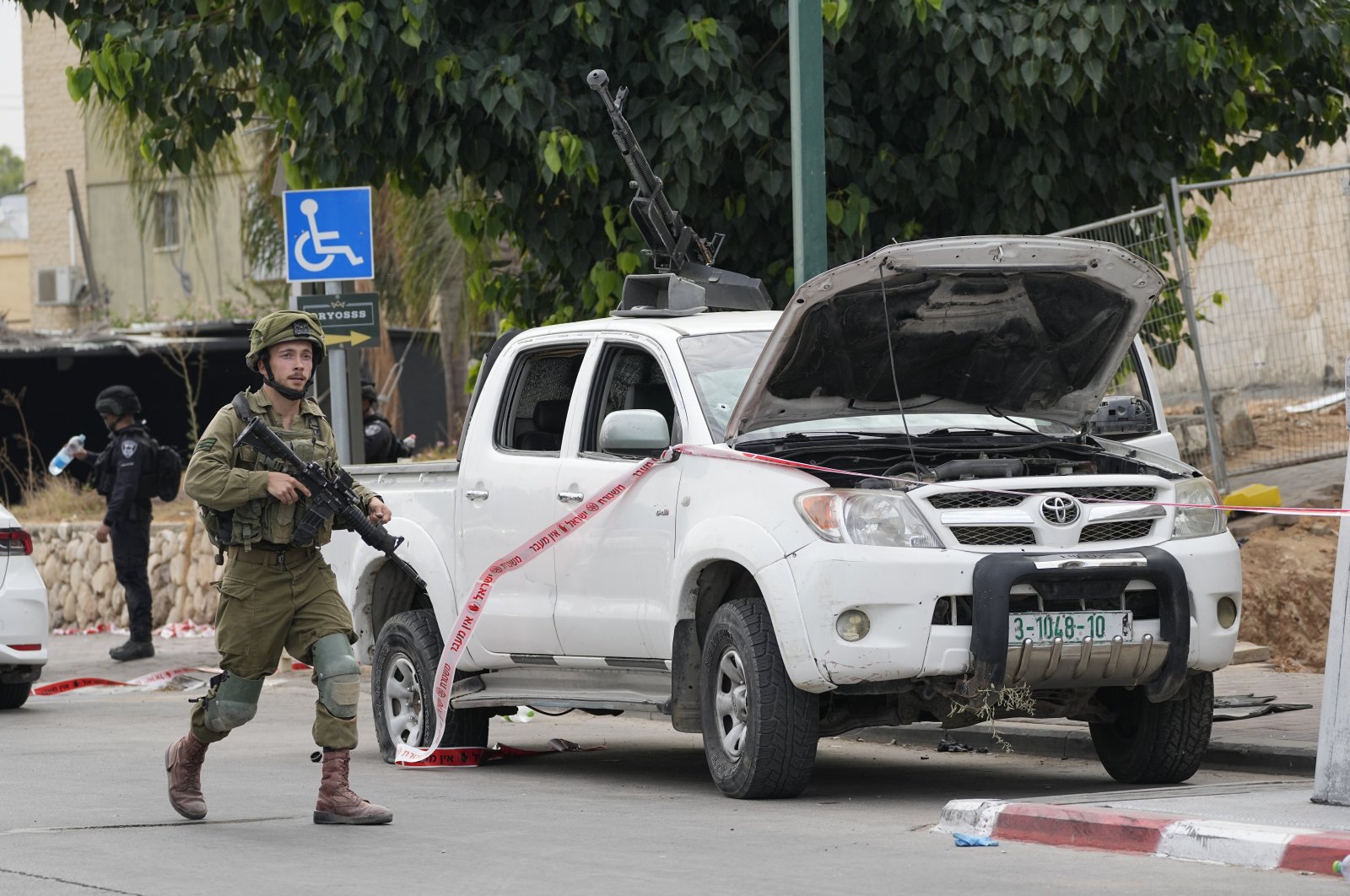
Israel's military intelligence chief Maj. Gen. Aharon Haliva's resigned Monday over the failures surrounding the Oct. 7 Hamas incursion of southern Israel.
The decision makes Haliva the first senior figure to step down over his role in the deadliest assault in Israel's history and could set the stage for more resignations among Israel's top security brass, over the incursion that saw members of the Palestinian resistance group blast through Israel's border defenses and causing the deaths of around 1,200 people, while taking roughly 250 hostages into Gaza. That attack triggered Israel's genocidal war on Gaza, now in its seventh month.
"The intelligence directorate under my command did not live up to the task we were entrusted with. I carry that black day with me ever since, day after day, night after night. I will carry the horrible pain of the war with me forever," Haliva wrote in his resignation letter, which was provided by the military.
Haliva, as well as other military and security leaders, were widely expected to resign in response to the glaring failures that led up to Oct. 7 and the scale of its ferocity.
But the timing of the resignations has been unclear because of Israel's ongoing conflict with the Palestinian resistance groups in Gaza and the Lebanese Hezbollah in the north.
Tensions with Iran are also at a high following tit-for-tat attacks. Some military experts have said resignations at a time when Israel is engaged on multiple fronts is irresponsible and could be interpreted as a sign of weakness.
Shortly after the attack, Haliva had publicly said that he shouldered blame for not preventing the incursion as the head of the military department responsible for providing the government and the military with intelligence warnings and daily alerts.
While Haliva and others have accepted blame for failing to stop the incursion, others have stopped short, most notably Prime Minister Benjamin Netanyahu, who has said he will answer tough questions about his role but has not outright acknowledged direct responsibility for allowing the attack to unfold. He has also not indicated that he will step down, although a growing protest movement is demanding elections be held soon.
The Hamas incursion, which came on a Jewish holiday, caught Israel and its vaunted security establishment entirely off guard. Israelis' sense of faith in their military – seen by most Jews as one of the country's most trustworthy institutions – was shattered. The resignation could help restore some of that trust.
In response to the incursion, Israel has killed more than 34,000 Palestinians in Gaza, according to the local Health Ministry. The war also devastated Gaza’s two largest cities and driven 80% of the territory’s population to flee to other parts of the besieged coastal enclave. The war has sparked a humanitarian catastrophe that has drawn warnings of imminent famine.
The attack also sent shock waves through the region. Tensions have rocked the Israeli-occupied West Bank, as well as cities and towns within Israel itself.
